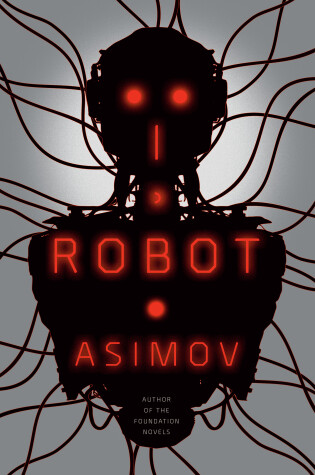
celinenyx
Written on Jan 27, 2015
Did you know this science-fiction classic by Isaac Asimov is a collection of short stories? No? Well, neither did I. Colour me surprised when I found out I, Robot is actually nine short stories with an introduction.
Most of these short stories star a recurring cast of characters including robopsychologist Susan Calvin and the comic duo of Powell and Donovan. They have been strung together by the introduction and some text throughout, but they generally stand on their own. The reader is invited to fill in the blanks, and in his own mind follow the development of a world that, ultimately, is completely run by robots.
Generally, I, Robot holds up very well. There are hardly any out-dated references, and in many ways the story feels timeless. What doesn't feel timeless is the simplistic writing and the juvenile banter of Powell and Donovan. I found the writing to be too one-dimensional; something I would gladly blame on the time period, were it not that I have read some way better written books from the same decade.
An hour later, perhaps, Powell looked at his hand on the metal arm-chair and said with frozen calm, 'Feel the wall, Mike.'
Donovan did, and said, 'You can feel it shake, Greg.'
Let's just keep calling each other by our name in dialogue, that feels so natural!
The content was interesting. Asimov explores, through a sort of 'case study' approach, the different ethical and practical consequences of being able to create robots with a conscience. He poses some very interesting points, especially in his later stories. Some of his assumptions haven't worked out the way he might have expected. Asimov's robots are able to understand human speech, and can respond in kind, yet scientists are baffled when a robot can do high-level calculations. The way robotics have developed in the last sixty years is the exact opposite - although we have advanced calculating machines, it has proven difficult to equip robots with the ability of natural human speech patterns. At the time Asimov is writing, this was still very unclear. So although robotics such as Asimov envisioned them haven't happened (yet), I hardly blame the guy for that.
Especially the last few stories gain a complexity not fully explored in the first few, though entertaining they were. There are parallels to slavery and links to events happening in Asimov's life (many of the stories are written in the aftermath of the Second World War). I really liked that, although he does raise some points worth thinking about, his stories are never as bleak or depressing as many other science-fiction tales are. I, Robot is humoristic and optimistic, with a sharp edge.

